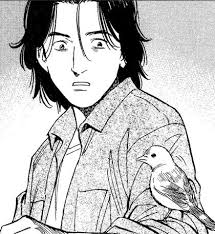So yeah, borgerlig means “bourgeois” but it also means “right-wing” or more broadly just “not socialist”. And so I’ve had to hear right-wing dipshits say this election stuff like
- Vote bourgeois! (this message paid for by Some Guy With a German Last Name Joint Stock Company)
- Do you want a bourgeois victory in this election? Then you better vote for these parties!
- I could never in my life vote for the Reds, I’ll be voting bourgeois this election. Here’s to a bourgeois victory!
- Et cetera
And this is just seen as completely normal. It boggles the mind how this terminology practically rubs your face in how right-wing politics only benefit the ruling class, and yet people still end up supporting it somehow?!
It’s honest at least. If I pointed out that the right is bourgeois I’d get called an antisemite by someone who wants to deport every jew to isreal if they want to go or not so they can all die and the world will end.
Interesting how the “Nordic countries are the good kind of socialism” thing looks from within the Nordic countries.
“The good kind of socialism” is when you supply the imperial stormtroopers of larger powers instead of sending your own, bribe enough workers to make the working class complacent, hate non-white people and don’t do any socialism at all.
Apparently, “good kind of socialism” just means the “national” type. Explains why it’s greatest defenders push it so heavily
Ehh those people just think “socialism” means “nice welfare state.” Although it’s telling that they need to center that within a European context.
I think Nordic “socialism” defenders in a lot of cases are people who only see the more superficial issues with capitalism and want a superficial solution. 80%+ chance they regularly complain about “tankies”.
I don’t think it’s so much that they only see superficial issues, more that only have a superficial analysis of why the issues exists. Thus we get some neat “redistribution” of the wealth but no analysis of the exploitation required for the wealth.
Thus we get some neat “redistribution” of the wealth but no analysis of the exploitation required for the wealth.
EVERY MAN A KING!
I think we more-or-less agree, they (for example) want the rich to pay their “fair share” but don’t want to dismantle them as a class.
Something something moderate wing of fascism something something imperialism turned inwards
I was about to make a really stupid reply before I realized you meant “National Socialism” and not “Socialism in one Nation”.
 How is this real
How is this realborgerling call that a yankee child
Filing “burgerlick” into my drawer of pejoratives.
It’s the same in Sweden. In elementary school history I got the impression that “borgare” were just people in medieval times who worked with something other than farming. I wonder if people just don’t know what the word means.
The same thing in Denmark. Currently there are big ads on the busses featuring a portrait of the leader of the Liberal Party doing his best impression of an oily used car salesman next to the text “The Liberal Party is moving Denmark in a more bourgeois direction” with bourgeois underlined in red to let the people know that this is the important word. Yes, the copy-writing is that atrocious, creativity is a rare talent on the right.
They’re basically shouting at the people that they’re fucking them over.
Trolex still being in charge of Venstre is just so weird. People know three things about him
1: Corruption
2: He was the, what, third? Choice for leadership
3: He has spent his entire leadership just doing what Mette says.Edit: Also, you should say the full name. Because the party “Venstre” (Left) changed their official full name to “Venstre, Danmarks liberale parti” (Left, the liberal party of Denmark) and in A Tribe Called Quest situation you have to say the whole thing.
Trolex is the best they’ve got. Newer and flashier reactionary parties have been eating Venstre’s lunch for a long time. The adolescent Ayn Rand fan club took all the ideological liberals, Inger Støjberg went solo and took all the frothing fascists, Lars Løkke went solo and took all the “adult in the room” centrists. All the talent and energy goes to other groups of horrible people, leaving Venstre behind as a zombie party with no apparent purpose that keeps staggering on aimlessly out of pure inertia.
Borger!

God I’d take Yui eating a borgar over Norwegian election campaigning any day.
Something similar is true in Germany where we have “bürgerlich” as an adjective with positive connotations, although we still use “bürger” as a standard word meaning “citizen” still. “Staatsbürger”, “gutbürgerliche Küche”, “Wutbürger” are common phrases, so it never occured to me to see someone calling to vote for a “bürgerliche” party as someone explicitly calling to vote for a bourgeois party, which would have different connotations.
Germans, imagine a bürger! 🍔
Ja ja das ist gut!!
Go on.

Yes, in Norwegian as well “borgerlig” has come to mean “citizen’s” through influence from German.
I think it’s the other way around, that is the scope of being a citizen expanded past the bourgeoisie
Historically, populations of states were mostly subjects, while citizenship was a particular status which originated in the rights of urban populations, like the rights of the male public of cities and republics, particularly ancient city-states, giving rise to a civitas and the social class of the burgher or bourgeoisie
Maybe I misunderstood what the dictionary was saying.
influence from German.

Burghers are bourgeois.

It’s very funny in Russian, because there is a shitload of words that originally meant “town dweller”, but came to mean different things later.
- горожанин - native Russian word, which still means “town/city dweller”;
- гражданин - the same word, changed to look more Old Church Slavonic, which now means “citizen”;
- мещанин - loanword from Polish mieszczanin, which was used to mean the third estate pre-1917, but now came to pejoratively mean someone with very narrow goals to increase his own prosperity with complete disregard of anything else;
- буржуа (or pejorative form буржуй) - loanword from French bourgeois, which means bourgeois; or sometimes Westerners get called буржуи in general as a joke;
- бюргер - loanword from German Bürger, which either refers to German town dwellers or German petit bourgeois, or rarely as synonym to мещанин.
So in the end there is two (or maybe three, depending on how you count them) bourgeois pejoratives out of five words.
At least “Småborgerlig” (Petit bourgeois) still has negative connotations, even if those connotations have nothing to do with being petit bourgeois.

Hehehe, burgerly
The House of Burgers was an assembly of elected representatives from Virginia that met from 1643 to 1776. This democratically elected legislative body was the first of its kind in English North America.
I’ve never thought about it before now, but I guess I have to assume that the same probably also is true in France?
Nah, “bourgeois” is still péjorative here.
I think they have the opposite history of calling things more radical and socialist than they actually are.
Like socialist party (centre left socdems and libs). Radical party of the left (centre left socdems).
Republicans (conservatives), in a country that literally became a republic by ending feudalism and killing their king.
I wanted to explain the deal with the socialist and communist parties, but ended up making something like an essay. I’ll probably gather some sources to back it up, maybe do parts and stuff and post it somewhere later, meanwhile it’s still down here below the spoiler tag.
TL;DR, you’re right but these parties started as actually Socialist and Communist and watered down their ideologies along the way. (Except the Radical Lef Pary, which was never radical left.)
divulgâche
The fun thing about the “socialist party” is it started as the SFIO (the French Section of the Worker’s International, referring here to the Second International). So originally it was supposed to be kinda radical. Now, the second international crumbled after WW1, because one of its lines was being opposed to all war between the nations but almost all of the parties adhering to it (including the SFIO) ended up actively supporting the war efforts of their respective countries. Tho this decision did get some resistance within the SFIO, notably from Jean Jaurès, the creator of the journal l’Humanité, who got assassinated. After 1920, there was a congress in Tours to decide whether or not to adhere to the Third International founded by Lenin. The majority voted to join, including most of those who had been opposed to joining the war effort. The party was renamed SFIC (French Section of the Communist International), tho it would later rename itself simply PCF (French Communist Party). ** But ** critically, much of those that voted against joining the third international didn’t just take the L and accept the result, they scissioned and recycled the now defunct name “SFIO”, tho they would later rename themselves PS (Socialist Party).
So from the get go, you know PS are sore losers and traitors, and they kept moving rightwards to distinguish themselves from the communists. Tho they were a few occasions when the two parties collaborated again, notably in 1936. This followed a fascist march in 1934 trying to emulated that of Mussolini. Both the Socialists and Communists each made a counter-march, and they ended up meeting in the street and merging, since they had a common enemy. Afterwards, they planned an electoral alliance to prevent the fascists from winning the next election. This alliance, the Front Populaire also included the PRC, or so-called Radical Left Party. Or as I like to call it, the left wing of the colonial party. They are bad and if anyone tells you anything good about them, aside from the fact that they weren’t on the good side of history in 1936, you have my permission to spit in their face.
This leeds me to briefly sum up each party’s views on colonization. The Communist Party was officially anti-colonialism, following Lenin’s doctrine. Tho they didn’t shine that brightly when challenged to act upon these views, like supporting the Algerians in their war of independance… The SFIO (soon to be PS), believed in the “civilizing mission” of France and saw colonialism as a way of speading enlightenment. They however recognized the means were bad and condemned the use of violence and force labour. Still, they believed an ethical colonialism was possible. The PRG was fully in favour of colonialism. Officially for the same noble reasons, but really because they were bought by the colonialist lobby from the start.
So the Popular Front didn’t stop colonialism. But it did bring some changes in the colony: The colonized people (or “indigènes” as they were called) could now get unionized, and many of those who would become independance leader, like Ahmed Sékou Touré started getting into politics through unions. That aside, the situations of the colonized didn’t change so much, some other rules changed in theory but the colonizers always found workarounds to do what they’d always done.
Back in the metropole, labour reforms like the 40h weeks made big progress for the workers, but unfortunately, another thing the Front Populaire got remembered for was mistakes in managing the next war, including voting full powers to Philippe Pétain hoping he could save France from the Nazis. Instead, he fully collaborated with them.
The Communist Party was outlawed and became a big part of the resistance, which gave them more power and credibility afrter the liberation. And by power, this included armed power, as the former resistants still had stocks of weapons. The decision surredner the weapons to De Gaulle’s government was in part incited by Stalin (as in these times the PCF still had strong ties to the USSR). He feared that the US could get involved, forcing him to involve the USSR, for which he wasn’t prepared.
In the 80s, the PCF accepted to rally behind the Socialist party, which had superceded it again; and helped get François Mitterand elected. Tho on his second mandate, he took a turn to the right (as the PS does) and lost the Communist Support. The PCF kinda had an existencial crisis at the fall of the USSR. Not only did it lose a foreign ideological support, but a bunch of documents was released telling of some bad stuff that happened under Stalin and of the fact that the PCF was aware of them and received instructions from Moskau. The party became less radical to try and clean its image, and still now it’s oscillating between several lines, including those that still try to make their retoric more right-compatible like Roussel, those that want to ally with France Insoumise, a more recent party that has a complicated history with the PCF and has at times seemed to want to absorb it rather than work with it as allies, and those who want to bring back a more radical line.
Denmark also has things that sound more radical than they are.
We have “communes” in charge of “people’s schools” and “people’s libraries” which is just municipally run public schools and libraries. We have a party named “The Left” which is the default reactionary right-liberal party and another named “The Radical Left” which is a moderate right-wing party.
There also used to be an office named “The Supreme Presidium”, headed by a “Supreme President” who was a regional authority dealing with municipal oversight and routine family law disputes in the Copenhagen area.
for all their faults they do see bourgeoisie as a derogatory term















